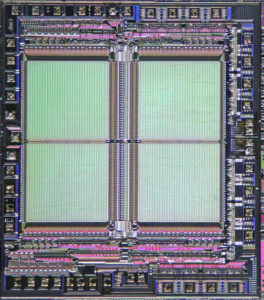
Attack IC PIC16F57 Program
The PIC16F5X from Microchip Technology is a family of low-cost, high-performance, 8-bit, fully static, Flash based CMOS microcontrollers. It employs a RISC architecture with only 33 single-word/single-cycle instructions. All instructions are single cycle except for program branches which take two cycles by Attack IC PIC16F57 Program. The PIC16F5X delivers performance an order of magnitude higher than its competitors in the same price category.
The 12-bit wide instructions are highly symmetrical resulting in 2:1 code compression over other 8-bit microcontrollers in its class. The easy-to-use and easy-to-remember instruction set reduces development time significantly.
The PIC16F5X products are equipped with special features that reduce system cost and power requirements. The Power-on Reset (POR) and Device Reset Timer (DRT) eliminate the need for external Reset circuitry.
There are four oscillator configurations to choose from, including the power-saving LP (Low Power) oscillator and cost saving RC oscillator. Power-saving Sleep mode, Watchdog Timer and code protection features improve system cost, power and reliability.
The PIC16F5X products are supported by a full-featured macro assembler, a software simulator, a low-cost development programmer and a full featured programmer. All the tools are supported on IBM® PC and compatible machines.
The PIC16F5X series fits perfectly in applications ranging from high-speed automotive and appliance motor control to low-power remote transmitters/receivers, pointing devices and telecom processors. The Flash technology makes customizing application programs from Attack IC PIC16F57 Program (transmitter codes, motor speeds, receiver frequencies, etc.) extremely fast and convenient.
The small footprint packages, for through hole or surface mounting, make this microcontroller series perfect for applications with space limitations. Low-cost, low-power, high performance, ease of use and I/O flexibility make the PIC16F5X series very versatile, even in areas where no microcontroller use has been considered before (e.g., timer functions, replacement of “glue” logic in larger systems, co-processor applications).
